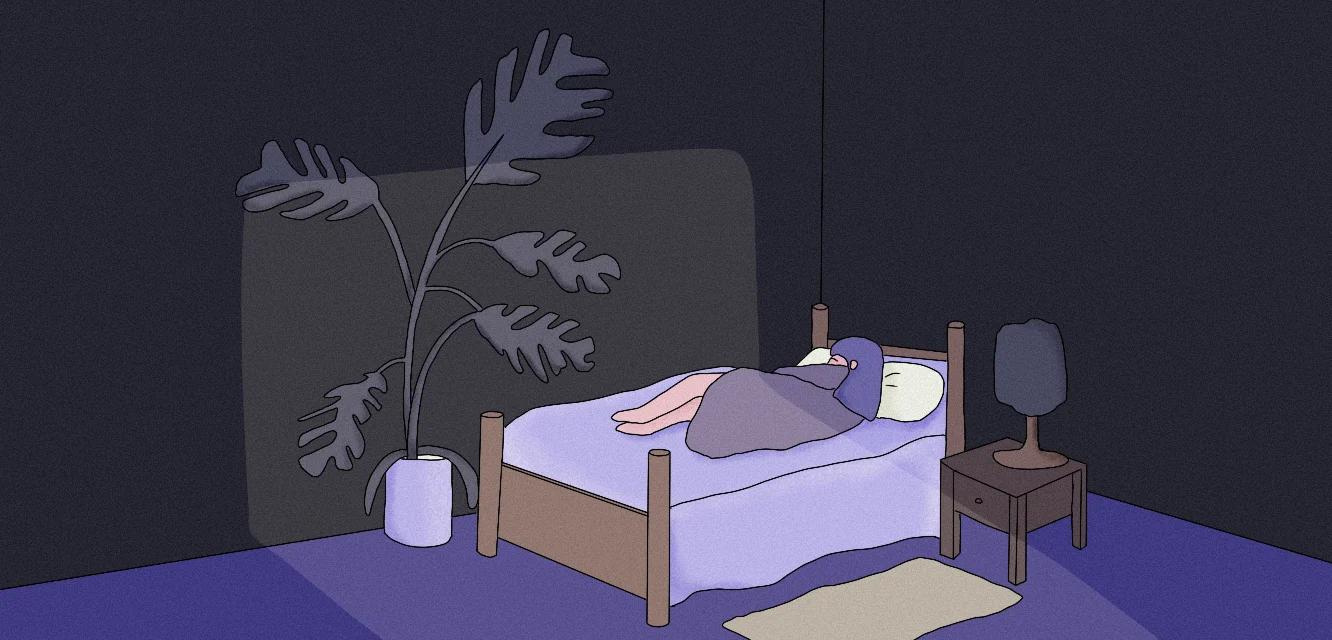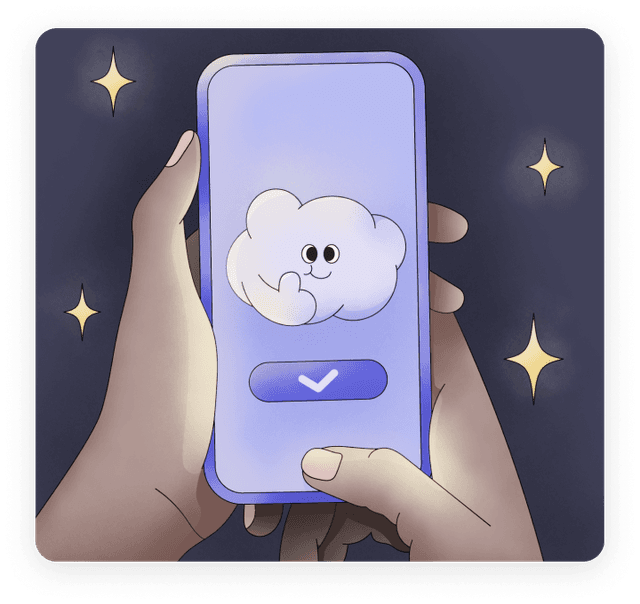
Denys Chumak
22 Mar 2024
Grief Dreams: What Are They? What Do They Mean?
After losing a loved one, many people have grief dreams, which are also called sorrow dreams or sadness dreams. Grief dreams often involve them, making people feel sad or at ease. However, these normal parts of grief can make people feel confused and uneasy. This blog post will discuss the different ways people understand grief dreams, their spiritual meanings, ways to deal with them, how common they are, and some ideas about them.
Different Grief Dreams Meaning
Here are ten ways to interpret something on grief dreams meaning.
Sign of Struggles
Your grief dreams might be a sign of your feelings and struggles. You're going through when you're grieving the loss of a loved one. They might give our inner brains a way to deal with loss and unsettled feelings.
Dream Visitation
A lot of people think that grief and dreams are visits from the spirit of a loved one who has died. This gives them comfort and encouragement and makes them feel like they are still connected to them after they have died.
Unresolved Issues
Grief dreams can show leftover business with the dead and give dreamers a chance to put things to rest by allowing them to talk about these issues and try to find a solution.
Show Love and Longing
Grief dreams often show love for the person who has died by making them long for them in ways they couldn't before they died. Grief dreams may help people remember happy times they had with loved ones who have died and let out feelings they didn't fully express before the death.
Fear of Death
Grief dreams may show how scared a person is of death or the unknown. They may be a way for them to face their mortality and accept that it is inevitable.
Letting Go Feelings
Grief dreams can be a safe place for letting go of feelings connected to the death of a loved one and accepting the truth of the situation.
Regaining Guidance
Grief dreams may be a way for the dead to give dreamers advice or knowledge that helps them through their grief process and helps them heal.
Acceptance and Healing in Grief Dreams
Dreamers who are mourning may see their dreams as a way to find acceptance and healing. They often show that they are making progress in their grief process and can move on with their lives, even though they are painful.
Death Symbols
Images or symbols of death and dying may show up in dreams during grief, like funerals, graveyards, or loved ones who have died. These dreams can help the dreamer figure out how they feel about death and dying and what they think about how it will affect them personally.
Collective Unconscious
Some theories say that grief dreams use the collective unconscious, which is a storehouse of memories, experiences, and images that we all share, to show common themes about death and sadness.
Spiritual Meaning Behind Dreams And Grief
If you believe in spiritual things, dreams and grief might be signs or visits from the spirit world, in many countries and belief systems. Dreams are seen as a way for people to communicate with the dead. And connect the physical world with the spiritual world. So, grief dreams could be seen as messages from the spirit world that tell you how to heal. Or that they are with you or that they want to visit. They could also be seen as messages from heaven that tell you how to best deal with your grief or could mean things like:
Dream Visits from the Dead
Some spiritual groups believe that grief dreams may be messages from loved ones who have died, giving support, advice, or encouragement so the dreamer can feel linked to them even after they have died.
Lessons or Insights
Grief dreams might have lessons or insights from the spirit world that can help the dreamer understand or deal with their grief. Messages could come from symbols, pictures, or direct touch from loved ones who have died and want to talk to you.
Help with Healing
From a spiritual point of view, grief dreams can speed up the healing process by giving dreamers who have lost someone comfort, peace, and spiritual support. Grief dreams help people deal with their feelings in a healthier way and find comfort even when they are remembering sad things.
How to Handle With Dreams During Grief
Grief dreams can be hard to deal with, but there are a few things you can try that might help and make you feel better:
Recognize and Validate Feelings: Recognizing and validating the feelings in grief dreams is essential. Do not judge or criticize yourself as you experience them.
Prepare a Safe Space for Processing: Make a safe space to work through your grief dreams by writing in a notebook, talking to trusted friends or experts, or expressing yourself through art or music.
Ask for Help: Don't be afraid to ask friends, family, or support groups for help. Talking about your problems can help you feel less alone.
Thoughtfully Consider Their Meaning and Symbolism: Think about what your grief dreams may mean and how they might be trying to tell you something about how to deal with your loss.
Create Rituals of Remembrance: To remember and honor your dead loved one and keep their memory alive, plan events or ceremonies. For example, you could light a candle in their honor, visit a place that brings back good memories, or do things they liked. This could mean lighting candles at funerals or when we visit their grave. Lighting candles can help us remember them better than forgetting about them.
Get Professional Help If You Need It: If your grief dreams are getting in the way of your daily life or are making you feel bad, you might want to talk to a mental health professional who specializes in grief and loss.
Keep in mind that dreaming about your loss is a personal process. Don't feel like you have to get help in any way that doesn't feel right to you. Do whatever you need to do to care for yourself that feels good.
Different Theories About Why People Have Grief Dreams
Researchers and psychologists have come up with different ideas about what grief dreams are:
Continuing Bonds Theory: This theory says that grief dreams are a normal part of suffering. Dreams give people a way to stay connected with loved ones who have died while they are grieving.
Emotional Processing Theory: Some experts think that grief dreams give people a safe way to talk about their feelings, memories, and unsolved problems that are connected to the death of a loved one. Dreams give us a place to do this exploring.
Cognitive Theory: This theory says people's ideas, beliefs, and hopes about death and the future may affect their grief dreams. Beliefs like these can affect the content and meaning of dreams, causing different feelings and experiences in the dream world.
Attachment Theory: It says that grief dreams may be a way for a person to show how close they are to a loved one who has died, which helps them feel better after they've died. People can stay close to their dead loved ones in their dreams even after they have died.
Common Grief Dreams That Occur
Common grief dreams show different ways that loss affects a person's emotions, and the meanings of these dreams can change based on the person having them and whether the same things happen over and over again:
Reunion Dreams: One of the most common grief dreams is seeing a loved one again after they have died. People who have these dreams may feel happy and at ease when they talk to or hug their dead loved one or share private moments with them in their dreams.
Visitation Dreams: There is a dream called a visitation dream in which the spirit of a loved one who has died appears to the dreamer in a vivid, natural way. Often, the spirit of the loved one sends messages of comfort or advice from beyond the grave. A lot of the time, these dreams also feel natural.
Symbolic Dreams: Images and scenes in grief dreams often have symbolic or metaphorical meanings. They can show feelings, fears, or unsolved problems related to a loss. Funerals, graveyards, angels, and religious or spiritual images are common symbols.
Conflict Dreams: When someone is mourning and has a dream about a fight or stress with a dead loved one, it could mean that they still have unsolved issues or feelings like sorrow, anger, or regret that are making it hard for them to deal with.
Recurring Dreams: Having the same themes or situations in grief dreams over and over again can be very upsetting and make the dreamer feel stuck or unable to move on from their grief.
Do You Often Have Grief Dreams?
Dreams and grief are common for people who have lost a loved one; up to 80% of those who have had them say they helped them deal with their grief. Research shows that the content and regularity of dreams may be very different for people who have lost a loved one.
Dreams about the dead often happen in the early stages of grief, when feelings are at their worst, but they can also happen months or years after a loss. Relationships with the dead, the events of the death, and how each person deals with grief all play a part.
Grief dreams can be upsetting or uncomfortable for some people, but they can also bring comfort, peace, and a sense of being connected with loved ones who have died. Grief dreams can differ for different people, depending on many personal and environmental factors.
Bottom Line
Grief dreams are complicated things that can help people who have lost a loved one find comfort, understanding, and healing. Sadness dreams are a unique way for people to understand how they deal with loss and sadness. They can be spiritual messages or signs of the grieving process. If you are looking to know the meaning and significance of dreams, DreamApp is best. This app will let you know about dreams in detail.
FAQs
1. Do people often have grief dreams after a loved one dies?
Indeed, sad dreams are a ubiquitous sign for people who have lost a loved one. According to a study, between 30 and 80 percent of people who have lost a loved one say they dream about them at some point during their grief process. The number and types of dreams can vary significantly from person to person, but they happen more often in the early stages.
2. Can grief dreams make people feel better or more anxious?
Grief dreams can make you feel many things, from ease and comfort to sadness and stress. Some people find comfort and peace in their grief dreams when they remember a loved one who has died. For others, however, grief dreams can be upsetting or distressing if they bring up painful events or unaddressed issues related to their loss.
3. What do grief dreams mean on a psychic level?
In a spiritual sense, grief dreams are often seen as messages from beyond. In some cultures and belief systems, dreams are seen as a way for people to communicate with those who have died or who have died before them. Grief dreams can also be seen as signs from the afterlife or visits from family members who have died. How they are interpreted depends on the person and their culture.
4. How can people deal with having grief dreams?
Even though it can be hard to deal with grief dreams, people can learn to handle them and find comfort. Some strategies are recognizing and accepting feelings, making a safe space for processing them, taking care of yourself, asking for help from others, looking into the meaning and symbols of religion or faith, making routines to remember, and getting professional help.
5. What are some possible reasons people have dreams that make them sad?
Psychologists and experts have developed many theories to explain grief dreams. Some of these are the continuing ties theory, the emotional processing theory, the cognitive theory, the attachment theory, and the neurological theory. Each idea gives us a different way to think about why grief dreams happen and what we can learn from them.
Did you have an unusual dream with this symbol?
Let's analyze this dream with our expert!
At least five words, please.

Your dreams are completely private
Take control of your dream emotions in the free mobile app



The most recent users' dreams
Go to the user dreams page
Dream App
Free dream interpretations

(1,213)











